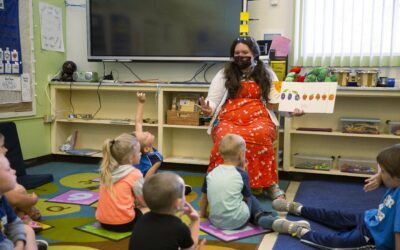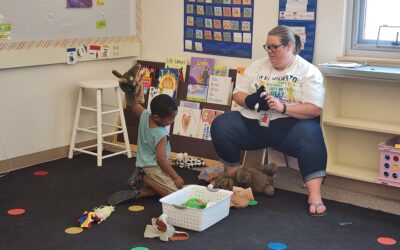Health And Learning Initiative
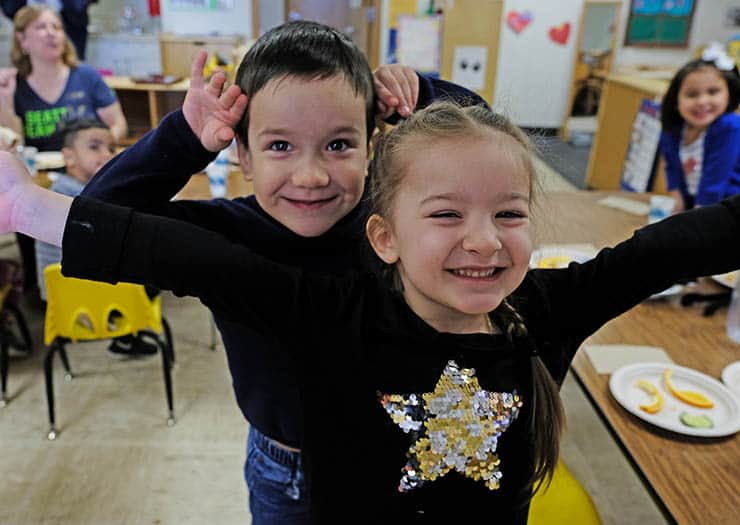
The experiences children have starting at birth set the foundation for their future learning: a baby’s brain produces a million neural connections each second, and 90 percent of brain development takes place in the first five years. During this critical period, we must ensure all kids get the health services and supports they need to ensure optimal development.
The Role of CCOs
Coordinated Care Organizations (CCOs) are coordinated networks of physical, behavioral, and dental health providers that provide comprehensive health services in their communities. Oregon launched CCOs in 2012 to improve the health care system for children and families enrolled in Medicaid. CCOs are accountable to the Oregon Health Authority (OHA) for improving health outcomes. Their progress is tracked by a range of metrics, some of which are incentivized. When a CCO meets an improvement target on an incentivized metric, they receive financial bonuses. Unique to Oregon, incentivized metrics allow OHA to influence the health sector’s priorities.
For example, after Oregon incentivized CCOs to increase developmental screenings for young children, the percentage of children who received screenings went from 21 percent in 2011 to 69 percent in 2017.


Identifying Metrics to Reward
The principle behind incentivized metrics is simple: the health sector is rewarded for delivering the services deemed most important to people’s long-term health. These metrics are chosen by Oregon’s Metrics and Scoring Committee. In 2018, Children’s Institute collaborated with OPIP and OHA, to form the Health Aspects of Kindergarten Readiness Technical Workgroup to recommend a set of metrics important to kindergarten readiness. The workgroup included CCO representatives, health care providers, early learning hub and program representatives, health care quality measurement experts, and consumer representatives. (See the Additional Resources below for more information on this workgroup.)
Prior to making their recommendations, the workgroup conducted family focus groups to better understand family perspectives on how health services currently support school readiness and how those services could be improved. The communities and participants selected for the focus groups were identified to represent cultural, linguistic, and geographic diversity. Children’s Institute, the Center for Improvement of Child & Family Services, and stakeholder partners already had existing relationships in selected communities and outreach was conducted through our existing networks.
Most participating families were already engaged in, and recruited through, high-quality early learning program and services.
Now the Health and Learning Initiative is crucially positioned to ensure the recommended metrics are developed and implemented in a way that improve health and learning for children from birth through age 5 across Oregon.

Additional Resources
Technical Workgroup Final Report
Download the Final Report from the Health Aspects of Kindergarten Readiness Technical Workgroup
Updated Health Aspects of Kindergarten Readiness Measurement Strategy
Key Focus Group Findings
More Information About the Workgroup
Workgroup Members
Dick Barsotti
Pediatrician
Metropolitan Pediatrics
Helen Bellanca
Associate Medical Director
Health Share of Oregon
Suzanne Dinsmore
Pediatrician
Childhood Health Associates (Salem)
Susan Fischer
Health and Education Integration Coordinator
AllCare Health
Xin Gao
Early Childhood Education Specialist
Oregon Child Development Coalition
Lisa Harnisch
Executive Director
Marion and Polk Early Learning Hub
Julie Harris
Director of Quality Programs
Children’s Health Alliance and
Children’s Health Foundation
Nicole Jepeal
Quality Improvement Analytics Supervisor
CareOregon
Sharity Ludwig
Director of Community Dental Programs
Advantage Dental
Rebeca Márquez
Community Health Worker
Immigrant and Refugee Community Organization
Alison Martin
Assessment and Evaluation Coordinator
Oregon Center for Children and Youth with Special Needs
Ashley Oakley
Early Childhood Policy Advocate
Native American Youth and Family Center
Sara Ruiz Weight
Parent, Preschool Classroom Aide
Yoncalla Elementary School
Maureen Seferovich
Child Provider Services Supervisor
Washington County Health and Human Services
Charles Smith
Program Director
Black Parent Initiative (formerly)
Project Contact
Marina Merrill
Director of Research & Strategy
marina@childinst.org
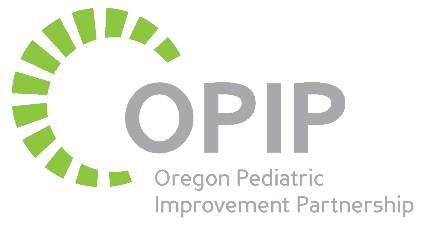
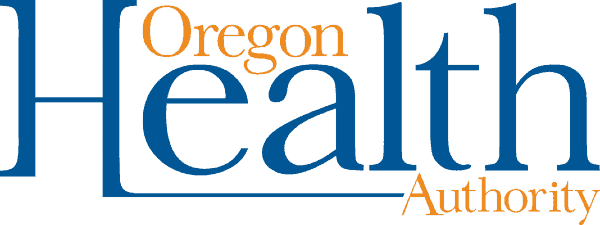
The Latest
Yoncalla Early Works: An Ecosystem of Care and Community
This longform piece, written by guest contributor Adriane Blackman, details how Yoncalla Early Works has driven an ecosystem of community and care to support the health and wellbeing of children and families in rural, southern Oregon.
From Kinder Camp to Classroom: A Q&A with St. Helens Early Learning Director, Dani Boylan
We’re sitting across the screen with Dani Boylan, director of early learning at St. Helens Early Learning. This is her second year running Kinder Camp after several years of teaching preschool. Students from three schools (McBride, Columbia City, and Lewis and Clark) gather in the kindergarten classes of the latter’s elementary school, filling the hallways with joyful sounds. Though their program faced significant state budget cuts which limited the scope for 2023, teachers and administrators in St. Helens worked together to reorganize for the year. They made a plan that made the most of the resources available, setting up intentionally small class sizes and offering support for children with varying social emotional needs. I eagerly pull my list of questions in front of me, and we begin our virtual interview.
First in the Nation Health Metric Aims to Address Social and Emotional Health
Oregon’s new health metric is a significant step toward ensuring young children are prepared for kindergarten.

